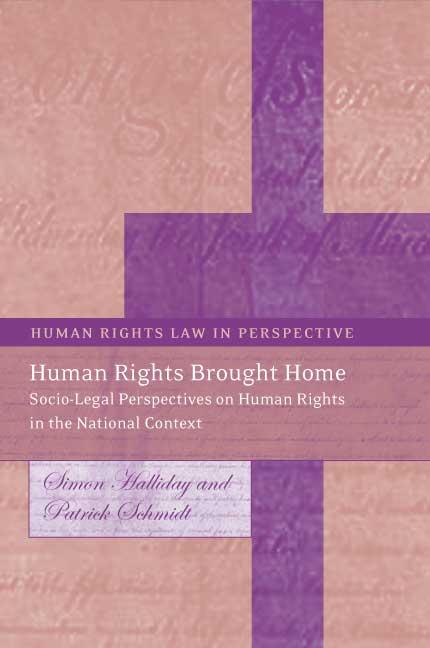
What practical impact does the incorporation of international human rights standards into domestic law have? This collection of essays explores human rights in domestic legal systems. The enactment of the Human Rights Act in 1998, ushering the European Convention on Human Rights fully into UK law, represented a landmark in the UK constitutional order. Other European states similarly have elevated the status of human rights in their domestic legal systems. However, whilst much has been written about doctrinal legal developments, little is yet known about the empirical effects of bringing rights home. This collection of essays, written by a range of distinguished socio-legal scholars, seeks to fill this gap in our knowledge.;The essays, presenting new empirical research, begin their enquiry where many studies in human rights finish. The contributors do not stop at the recognition of international law and norms by states, but penetrate the internal workings of domestic legal systems to see the law in action - as it is developed, contested, manipulated, or even ignored by actors such as judges, lawyers, civil servants, interest groups, and others. This distinctly socio-legal approach offers a unique contribution to the literature on human rights, exploring human rights law-in-action in developed countries. In doing so, it demonstrates the importance of looking beyond grand generalities and the hopes of international human rights law in order to understand the impact of the global human rights movement.